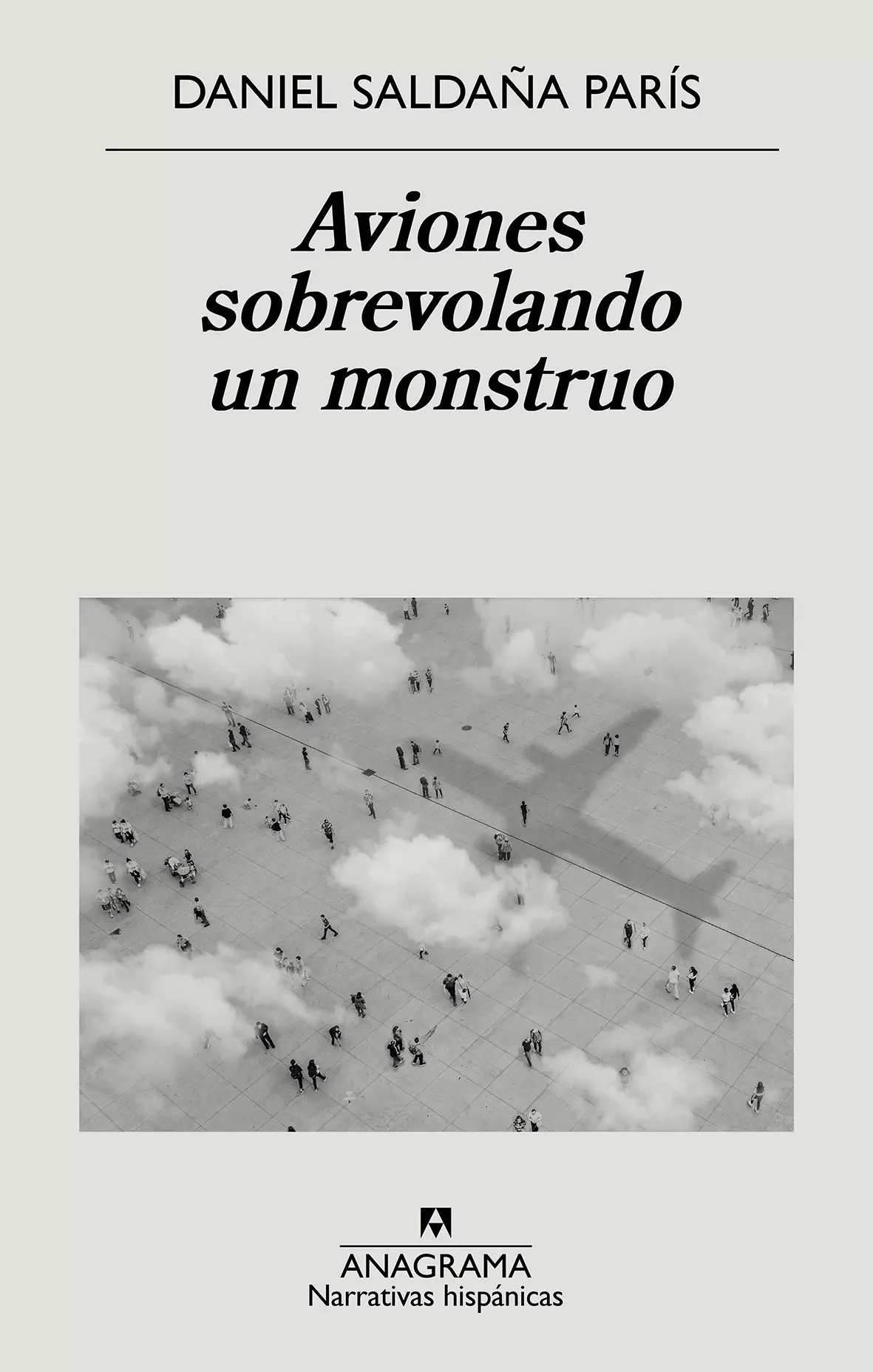The cities we live in, the ones we inhabit, They become part of our identity. By interacting for a long time with them, inevitably they become part of our being.
The noise that they manifest, also their silence, the temperature that surrounds them, their past, their society (and dirt), its structure, and multiple other characteristics mold us according to its whim, they affect us But we also absorb from them as we meet.
Thus, a kind of symbiosis occurs, feedback between the individual and the place. An experience that Daniel Saldana Paris has reflected in his new work, Planes flying over a monster (Anagram). A book full of autobiographical texts, very different from each other, in which the common thread is the cities with which he has had a personal relationship.

The writer Daniel Saldaña Paris.
Writing about a city, that is. From Mexico City to Madrid, from Cuernavaca to Montreal, doing layover in Havana, Daniel Saldaña Paris narrates how his experience was in these cities, molding the writing to what each city offered.
Thus, there are harder texts in which the writer “felt that he had to go more to the point. And others that allow me to ramble more, leave and come back, since this was the style of the walk through its streets. In this way, I tried to approach these spaces from very different planes: the historical, the real, the political and the fictitious”, tells Condé Nast Traveler.
THE B SIDE OF THE CITIES
The part that Daniel Saldaña Paris shows us about cities It is not the prettiest or the most touristy, but rather a face b. Spaces that we end up frequenting more than those of us who live in them, since it requires a long stay to get to know them.
“I like the alleys better than the big avenues. Something that has to do with my personality. In general, I end up always returning to the same points. They are places that speak directly to me. They can be ugly or not so ugly, but I always find beauty in them,” he maintains.
places like the area of the abandoned factories Montréal, that had their heyday during the industrial era and that have now been converted into an area dedicated to the world of art. “I am interested in that space, with everything half rusted, where humidity is the protagonist. It catches my attention visually, but also the type of social dynamics that they impose on their inhabitants. There are many that have been converted into artists' studios, which gives it a special vidilla. Many concerts are also given there”, comments the writer.
Ultimately, it is about places that speak of the history of cities, but that also configure their present.
What noise, very constant throughout different fragments of the book. Daniel Saldaña Paris strains his ears to tell us what they sound like. So much so that given how deafening Mexico City can be, the writer walks through its streets listening to how other cities sound.

Mexico City
“I have very little tolerance for noise and Mexico City is very noisy. After living for a while in Montreal's winter, where the snow absorbs much of the sound, Going back there was a shock. If you go on public transport it is impossible to read because everyone is listening loud music. I tried to find that joyful point in this too, ”he points out.
THE LESS TOURIST PART OF THE WRITER
And, just as he does when writing about a city and its entrails, Daniel Saldaña Paris also shows the less touristy, less pleasant part. A sought after exhibition, since he was interested in being vulnerable. “I think autobiographical writing has to go that way. Writing an attractive character that is going to please everyone did not interest me, but the opposite operation ”, he clarifies.
A Daniel Saldaña Paris that can be seen at different levels, in different layers, and in which many times not even he recognizes himself. Something that is perhaps due to the effect of having lived in different coordinates and that he finds his salvation “in the books, the music he listened to, some memories that make me recognize myself in that other person I was in the past. I wanted that sense of strangeness to be in the book.”

Planes flying over a monster
Something that perhaps also has to do with the writing itself, which often forces us to fictionalize our own lives, even if we try to tell our own biography. The fact of looking for an order, of giving meaning to a time, it ends up losing a certain reality of the story.
“That is one of the themes that is touched on in the book. That As much as you write about real topics, literature implies imposing a structure, since life only has a beginning and an end. Therefore, you have to invent small structures to give it order and meaning. I think that's a way, I don't know if it's fiction, but it's literature. Y That's where the reflections that I carry out in the book begin on the extent to which what I tell is true or false", the writer ends.
